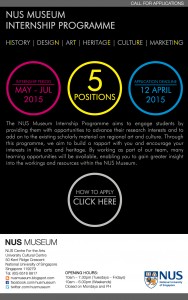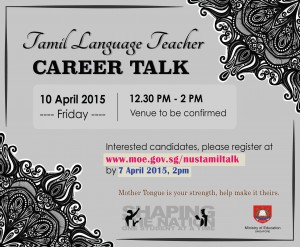NUS Psychology wins Regional 2015 SPS–ARUPS Student Research Award
The 5th ASEAN Regional Union of Psychological Societies Congress, organized jointly by the Singapore Psychological Society (SPS) and the ASEAN Regional Union of Psychological Societies (ARUPS), took place in Singapore from 25 to 27 March 2015. Among 227 research entries that were submitted by psychologists and academicians in the region, and the 147 that were finally accepted for presentation, Mr. Yong Zhihao Paul, a recent NUS Psychology graduand and winner of the 2014 Singapore Prison Psychology Prize, has won the SPS-ARUPS Student Research Award this year for his submission titled Enhancing Online Learning Using Retrieval-based Practice: Implications for Singapore’s Educational System. This research was first pursued as Mr. Yong’s Honours Thesis at the NUS under the mentorship of Dr. Lim Wee Hun Stephen, one of NUS’s recent named Rising Stars and enlistees to her Honour Roll for Teaching Excellence.
The researchers commented: “A goal that modern Singapore pursues relates to meaningful advancements in our educational system, which would in turn determine the continued progress of our society, in terms of our workforce quality, national economy, and so forth. We constantly seek productive methodologies of education – instruction and learning – with the aim to discover optimal educational approaches. Educators typically rely heavily on learning activities that encourage elaborative studying, whereas activities that require students to retrieve and reconstruct knowledge are used less frequently and often for nothing more than testing purposes. Here we show that practising to retrieve information gained from online Coursera lectures actually, albeit counterintuitively, produced better long-term knowledge retention than did studying that information repeatedly. Based on the findings, there is a need to carefully (re)consider the notion and role of ‘testing’ in schools and contemporary – online – learning platforms, because testing potentially promotes learning. Our longer-term goal is to contribute meaningfully to shaping the educational landscape in Singapore through our research programme.”
Currently a psychologist at the Singapore Prison Service, Mr. Yong expresses his appreciation to his research supervisor. In his words to Dr. Lim: “You have this unique ability to connect with, and influence students to excel beyond the classroom. This has spurred me to do the same with my peers and juniors. Your traits of a distinguished educator are more than just life-changing. Your inspiration for excellence and your friendship transcend beyond the people you meet – it is ‘lives-changing’. I have not met any other educator who makes me feel truly confident in my work and in myself. You have instilled a burning passion in me to be a lifelong learner. I would not be half the psychology graduate I am today, without your inspiration and supervision.”
Dr. Lim, who also sits on the Executive Council of the NUS Teaching Academy, shares his personal thoughts: “The theme of the ARUPS Congress is Professionalising Psychology: Raising the Standards of Psychology for Nation Building. We are glad that our educational psychology research won an award. As we mourn the passing on of our nation’s first Prime Minister Mr. Lee Kuan Yew, we fondly remember Mr. Lee as someone who made every effort to strengthen, among the many other things, education in Singapore. In his speech to principals of schools at the Victoria Theatre on 29 August 1966, he shared about the kind of education he would like to have, if he were given superhuman powers:
The ideal product is the student, the university graduate, who is strong, robust, rugged, with tremendous qualities of stamina, endurance and at the same time, with great intellectual discipline and, most important of all, humility and love for his community; a readiness to serve whether God or king or country or, if you like, just his community.
As an academic and educator, I continue to do my part for the nation by nurturing students holistically, and preparing them for life after university. I believe all of us have a very specific role to play in nation building. Together, let us bring the legacy into the future, and keep on loving and building Singapore our home.”

Mr. Paul Yong (left); Ms. Clare Yeo (middle; President, Singapore Psychological Society); Dr. Stephen Lim (right)




